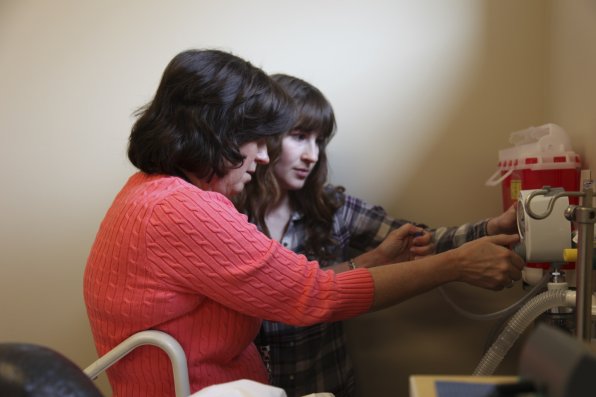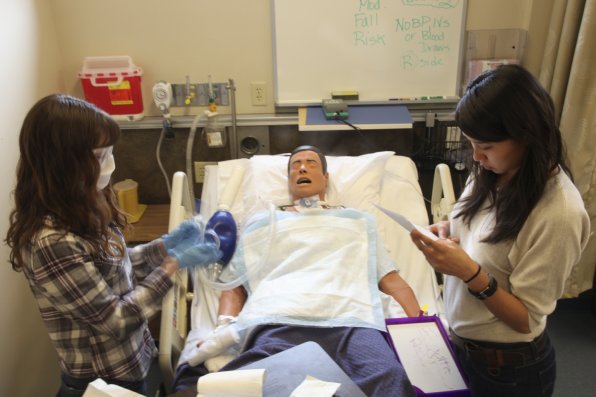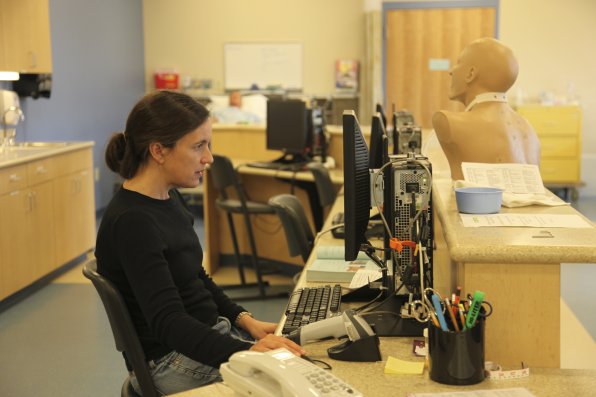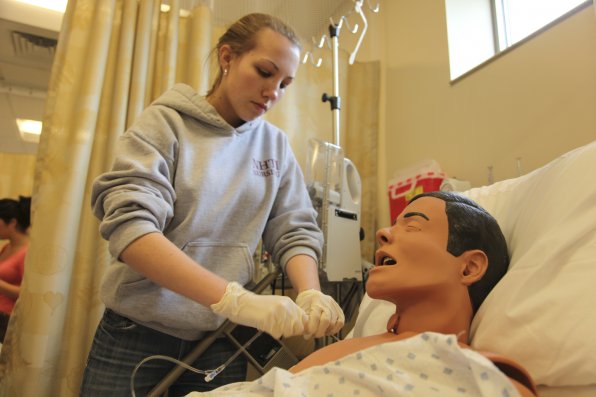If you've ever had to spend any time in the hospital, then you've probably come to appreciate just how important nurses are. They aren't just there to tuck you in and change your bedpans; they administer live-saving drugs and usecutting-edge medical technology. One mistake, one misturned dial or twisted tube could cost a patient his or her life. So it's obvious nurses must go through rigorous training before they become certified as registered nurses.
New Hampshire Technical Institute's nursing program is considered one of the best, and toughest, programs in the state. They admit 96-120 students to the program every year, and those who succeed have little trouble finding jobs. Professor Pamela Kallmerton said that about 90 percent of graduating students get hired right out of school.
“We've had a really high success rate with them passing the board,” said Kallmerten, who has been teaching full-time at NHTI since 1999.
Students split their time between lectures, lab and actual clinical work at local hospitals.
Kallmerten credits the clinical placement as a key in the ability of graduates to get hired, as they establish connections with potential employers through the program, and learn critical skills needed in the real world.
First-year student Carolyn Mallon is confident in her choice to study nursing at NHTI.
“I'm a single parent, and when I decided to go back to school, I was very logical about it,” Mallon said. “It's affordable and it's rumored to be the best two-year RN program in the region.”
One thing that sets NHTI apart from other nursing programs is its clinical research center, where students practice on life-like mannequins that have a pulse and heartbeat, and even pass urine. The students get to work on the dummies and do almost everything they will have to do when working on actual patients. By the end of their courses, students have to be prepared to take an exam in which they tend to the mannequin as it goes through a series of realistic symptoms. This, students said, can be as stressful as working on a real patient.
“We have run simulations where (the mannequin) didn't make it, from a cardiac arrest,” Kallmerten said. “Usually, the students get pretty distraught, but it's part of life. It doesn't always work.”
The clinical research center, along with the rest of the nursing facilities, is housed in the recently built Beverly D. Grappone Hall. The program moved into the building at the beginning of the 2009-10 school year, and Kallmerten said that the new facility has improved their ability to instruct.
“It was like Christmas,” Kallmerten said. “We were crammed in, congested (in the old building).”
The students may have a nicer facility to learn in, but that doesn't mean that the work is any easier. The program has stringent admission requirements and limited spots, and, once admitted, it doesn't get any easier.
“They always say the schoolwork is hard, but it's like hitting a brick wall,” Kaylee Johnson, a first-year nursing student, said. “You go to bed thinking about nursing.”
Johnson was originally attending school for business, but it was in an LNA (licensed nursing assistant) course where she found her calling.
“I like doing it to help people,” Johnson said.
For more information about the NHTI nursing program, visit http://bit.ly/fOFNbC or call the admissions office at 271-7134.












